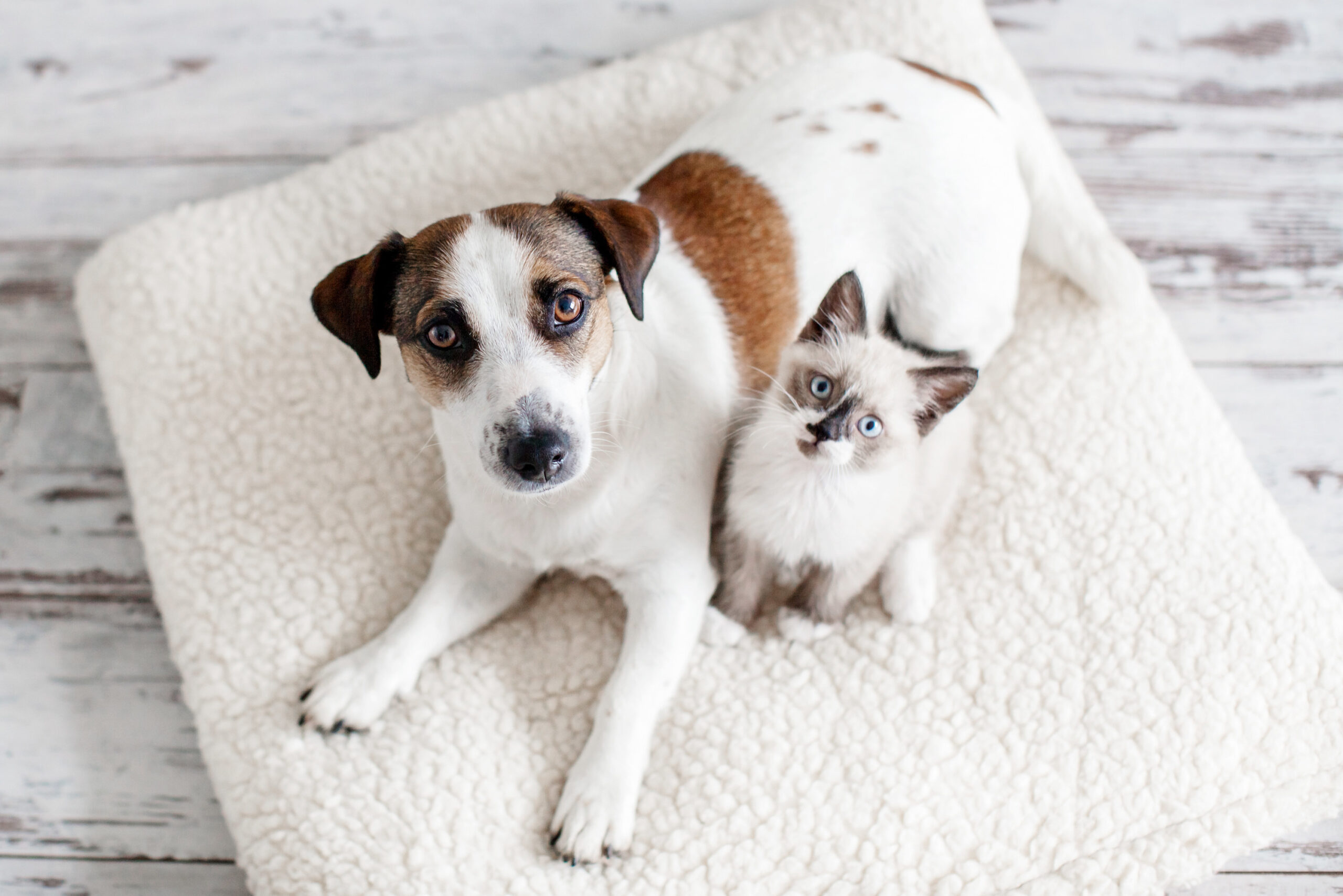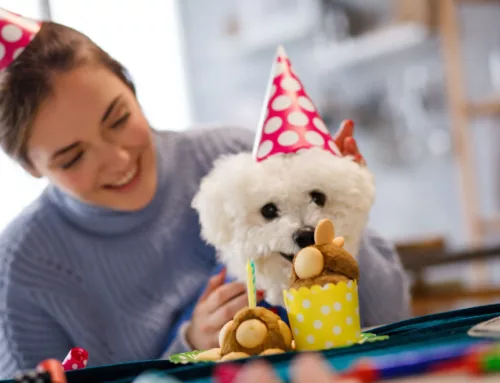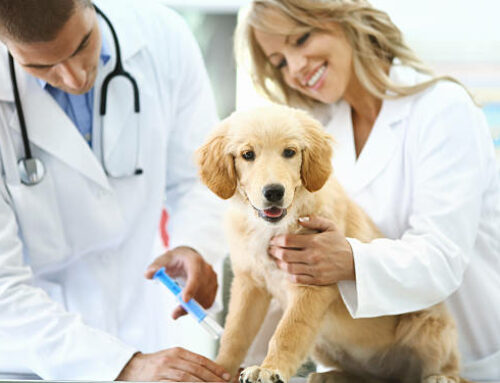Introducing a new pet into the family is an exciting time, but pets need to be cared for from day one. You will most likely have the food, attention, and shelter part figured out already, but what about your pet’s medical needs? Your local vet surgery should see your newest addition to the family fairly early on to ensure they’re growing well and thriving in their new home.
From that point on, you will of course want to visit the vet whenever your pet is under the weather, but you’ll also need to take them for puppy checkups or a kitten check-up every now and then. Read on to learn more about routine checkups for your pet.
How Often Do Puppies and Kittens Need Checkups?
Your pet will probably require fairly frequent trips to the vets in the first 6 months of their life. These initial checkups will help ensure your furry friend is growing well and staying healthy.
From the age of around 1 month through to 6 months, your kitten or puppy should visit the vet once a month. After this, you can take them in every 2-3 months until they reach their first birthday. At this age, most puppies and kittens are considered fully grown and should begin annual vet checkups to ensure they continue to be healthy and problem-free.
Regularly visiting the vets for checkups is a good way to find out if there are any issues that need to be addressed, as a veterinary professional will know what signs to look out for and might be able to spot things that you can’t. A vet can make an informed decision as to what treatment your puppy or kitten may need, based on the checkup. All being well, they will be given a clean bill of health and sent on their way!
What to Expect from a Kitten Check Up
Your first kitten checkup should be when your feline friend is around 6 weeks old and will usually be fairly simple. The vet will examine your kitten and carefully check for signs of illness. They will keep an eye out for signs of parasites and malnutrition, as well as ensure that your kitten is growing well. This type of examination will occur at each of your kitten’s visits, to maintain their good health and spot any potential problems early on.
Vaccinations are very important for any new pet. Kittens usually get their first vaccination at 2 months old, then every four weeks until they are 16 weeks old. They will also then require further vaccinations at a year old. These are important for preventing diseases like rhinotracheitis, feline leukaemia, and rabies, among many others. Your vet will help you create a proper vaccination schedule to ensure your kitten is fully protected from preventable diseases.
If your kitten isn’t doing well, you may be given medications to help them get better. These can be tricky to administer, so ask for tips from the vet. They will usually have some tricks to help kittens take their medications.
What to Expect from Puppy Checkups
Like kittens, puppies should visit the vet early on for a full checkup. This will help to ensure they are healthy and growing well. The vet will examine the puppy thoroughly and check their faeces for parasites. Since most puppies have some type of roundworm in their system, you’ll likely need to give your puppy medications to eradicate this and prevent them from falling victim to worms in future.
Puppies will also receive vaccinations starting from about 2 months old and continuing until they reach 6 months. These prevent potentially deadly diseases such as rabies and distemper. Again, you can arrange an appropriate vaccination schedule with your vet to ensure your puppy remains up-to-date with the required jabs.
If you are given medications for your puppy, be sure to ask any questions you may have while you’re still there. It’s important that medications are administered correctly, so asking questions can help you be sure of yourself and avoid putting your puppy at risk. You may ask any other pet care questions while you’re with the vet, including anything about training, feeding, and exercise.
Spaying and Neutering
Within their first year, your pet will need to be spayed or neutered. This procedure ensures they will not breed and helps them live longer, healthier lives. Both procedures (spaying for females and neutering for males) are safe and your pet will almost certainly recover quickly.
It’s best to keep your kitten or puppy calm before they arrive at the vet surgery. They will be put under general anaesthetic for the procedure and returned to you once they are in recovery. Often, pets need to wear a cone to prevent them from licking and biting at the stitches. Young animals usually recover quickly and will be running around before you know it. Ideally, you will keep them calm and relaxed as the anaesthetic wears off and they begin to heal.
Signs You Need to See a Vet
While you can schedule regular vet surgery visits, there may be times when your pet needs some extra care. How do you know if your kitten or puppy is unwell or needs to go to the vet? There are a few signs that indicate something is up with your furry friend. With very young animals, it’s always better to err on the side of caution and take them to be looked over by a professional.
Since they are so young and small, any illness can rapidly overwhelm them. Complications are more common when animals are still small and have fewer reserves to help them power through. For instance, if a 2lb kitten experiences diarrhoea or vomiting, it will dehydrate much faster than an 18lb adult cat. Keep this in mind when you’re deciding if it is necessary to take your pet in or not.
Symptoms to Look Out For
Excess thirst: Excessive drinking may be a sign of diabetes or kidney disease. It’s also worrisome if the animal is not urinating as much as they seem to be drinking.
Laboured breathing: If an animal of any age seems to be struggling to breathe or panting despite being cooled down, you should talk to your vet. They may have a cold or another respiratory issue, so it’s best to solve it as fast as possible.
Changes in appetite: It’s normal for pets to change their eating habits a bit as they grow. Like children, they’ll eat a lot more when they’re going through a growth spurt, but if you notice a drastic change in their eating, it’s time to see a vet. Again, as small animals, they can lose weight rapidly if they stop eating, so it’s important to determine what is happening.
Vomiting: Puppies and kittens are prone to vomiting from time to time and, as long as it is just once or twice, you don’t need to worry too much. However, if they are vomiting repeatedly or after every meal, they need to be taken to a vet. This could indicate a more serious problem such as constipation.
Changes in stool: A little watery stool from time to time is no problem, but if your pet has diarrhoea constantly, check in with the vet. You should also check if there are regular changes of any kind in their stool.
Lethargic behaviour: Has your puppy lost interest in running around? Is your kitten just lying there without interest in playing? You know your pet best, so if they are acting lethargic or just seem out of sorts, you should make an appointment with your local vet. Any type of unusual behaviour is a reason to get your pet checked out.
Signs of pain: When your little kitten or puppy is whining or meowing more than normal and flinching or squeaking when you touch a certain part of their body, something is likely wrong. These can be signs of pain, as can limping or excessive licking of a specific spot.
Rashes or skin problems: It’s quite possible for very young puppies and kittens to suffer from mange or allergies. You’ll want to get them looked over as soon as possible when you notice they have a rash or any type of skin changes. You may also notice that fur is falling out of its own accord or because they have been incessantly licking the affected area.
All of these signs indicate you need to take your pet to a vet surgery sooner than their regular check-up. It’s important to stay on top of their health, as it can be quite fragile while puppies and kittens are still small.
With regular vet visits and plenty of loving care at home, your kitten or puppy will become quite happy and healthy. If your pet does develop a health concern, it’s always easier to deal with when you have an experienced vet by your side. Also, when a vet sees your pet on a monthly basis, they will pick up on any potential signs and symptoms fairly easily.
Do you have a new pet at home? Be sure to check out our knowledge base so you can learn more about how to care for your new puppy or kitten.
You should also make sure they are registered with your local vet, so that you know help is at hand whenever you need it. Whether you want to schedule a routine checkup or require emergency veterinary care, don’t hesitate to contact Bay Vets today. We’ll be happy to help you maintain your furry friend’s good health.





